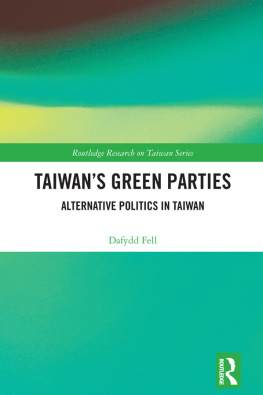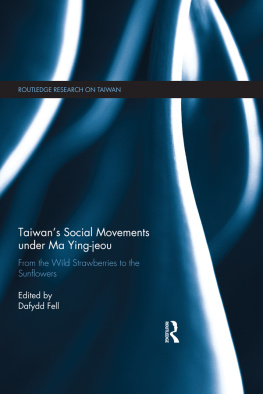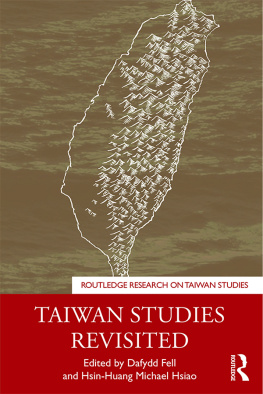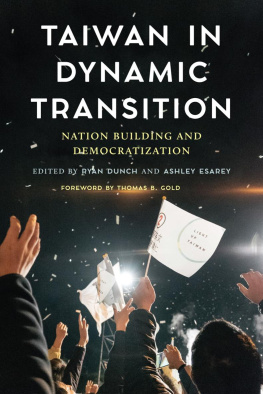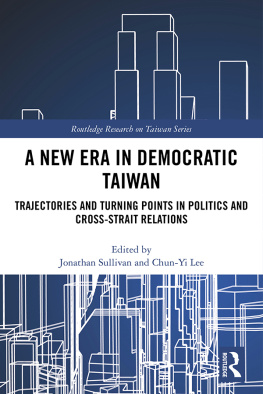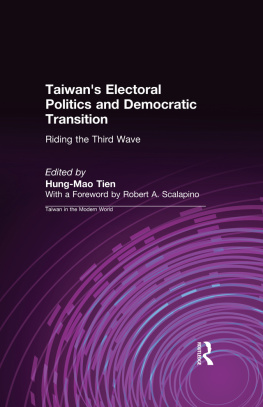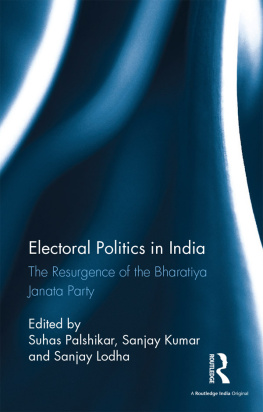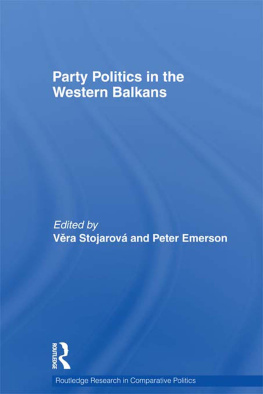Taiwans Green Parties
Examining the Green Party Taiwan (GPT) since its establishment through the aftermath of the most recent national elections in January 2020, this book focuses on Taiwans most important movement party over the last two and a half decades. Despite its limited electoral impact, its leaders have played a critical role in a range of social movements, including anti-nuclear and LGBT rights campaigns.
Plotting the partys evolution in electoral politics as well as its engagement with the global green movement, this volume analyses key patterns of party change in electoral campaign appeals, organisation and its human face. The second half of the volume concentrates on explaining both the partys electoral impact and why the party has adjusted ideologically and organisationally over time. Based on a wide range of material collected, including focus groups, interviews and political communication data, the research relies heavily on analysis of campaign material and the voices of party activists and also considers other Green Parties, such as the splinter Trees Party and GPT-Social Democratic Alliance.
Applying a wide range of theoretical frameworks to plot and explain small party development, this book will appeal both to students and scholars of Taiwans politics and civil society but also to readers with an interest in small parties and particularly environmental parties and movements.
Dafydd Fell is Reader in Comparative Politics with special reference to Taiwan at SOAS University of London. He is also Director of the SOAS Centre of Taiwan Studies. His first publication was Party Politics in Taiwan (Routledge, 2005), which analysed party change in the first 15 years of multi-party competition. He also authored Government and Politics in Taiwan (Routledge, 2011) and co-edited Migration to and from Taiwan (Routledge, 2013); Social Movements in Taiwan Under Ma Ying-jeou was published in 2017. His most recent co-edited book was Taiwan Studies Revisited, published in 2019.
Routledge Research on Taiwan Series
Series Editor: Dafydd Fell
SOAS, UK
The Routledge Research on Taiwan Series seeks to publish quality research on all aspects of Taiwan studies. Taking an interdisciplinary approach, the books will cover topics such as politics, economic development, culture, society, anthropology and history.
This new book series will include the best possible scholarship from the social sciences and the humanities and welcomes submissions from established authors in the field as well as from younger authors. In addition to research monographs and edited volumes, general works or textbooks with a broader appeal will be considered.
The Series is advised by an international Editorial Board and edited by Dafydd Fell of the Centre of Taiwan Studies at the School of Oriental and African Studies.
31Taiwan Studies Revisited
Dafydd Fell and Hsin-Huang Michael Hsiao
32Cross-Strait Relations Since 2016
The End of the Illusion
J. Michael Cole
33Deliberative Democracy in Taiwan
A Deliberative Systems Perspective
Mei-Fang Fan
34Literary Representations of Mainlanders in Taiwan
Becoming Sinophone
Phyllis Yu-ting Huang
35Taiwans Green Parties
Alternative Politics in Taiwan
Dafydd Fell
For more information about this series, please visit: www.routledge.com/Routledge-Research-on-Taiwan-Series/book-series/RRTAIWAN
First published 2021
by Routledge
2 Park Square, Milton Park, Abingdon, Oxon OX14 4RN
and by Routledge
52 Vanderbilt Avenue, New York, NY 10017
Routledge is an imprint of the Taylor & Francis Group, an informa business
2021 Dafydd Fell
The right of Dafydd Fell to be identified as author of this work has been asserted by him in accordance with sections 77 and 78 of the Copyright, Designs and Patents Act 1988.
All rights reserved. No part of this book may be reprinted or reproduced or utilised in any form or by any electronic, mechanical, or other means, now known or hereafter invented, including photocopying and recording, or in any information storage or retrieval system, without permission in writing from the publishers.
Trademark notice: Product or corporate names may be trademarks or registered trademarks, and are used only for identification and explanation without intent to infringe.
British Library Cataloguing-in-Publication Data
A catalogue record for this book is available from the British Library
Library of Congress Cataloging-in-Publication Data
A catalog record for this book has been requested
ISBN: 978-0-367-65031-5 (hbk)
ISBN: 978-1-003-12750-5 (ebk)
Typeset in Times New Roman
by Apex CoVantage, LLC
Contents
PART I
Introduction, research questions and formation
PART II
The changing impact and human face of the Green Parties
PART III
The first decade: 19962005
PART
IV The Pan Han-sheng era: 20062012
PART V
The Lee Ken-cheng era: 20132016
PART VI
The Wang Hau-yu era: 20162020
PART VII
Conclusion
There are so many people that have helped me over the past eight years, it is hard to know where to start. Firstly, I want to thank all those GPT figures who taught me about the party in the interviews listed in Appendix 1. I am grateful for their generosity in spending so much time to share their experiences and views and also for helping me to gather the relevant research data. If I have to narrow down to two GPT figures, then I need to thank Yu Wan-ju for the initial invitation to start researching the GPT and Peng Yen-wen for being my perfect research partner for the first half of this project.
I could not have completed this project without the support and love of my family, especially my wife Jewel Lo () and son Laurence Fell (). Laurence was with me at that first acrimonious GPT focus group on December 17, 2012. Both have helped me with the time-consuming task of transcribing interview data. However, since Laurence went to university in the second year of the project, he has not had to put up with as much as Jewel. Jewel has joined me on numerous field trips and sat through many of my interviews. Particularly in the last year when I started writing the book, I have become more and more obsessed. I have got into the habit of turning every conversation topic back around to the GPT or Trees Party. On our daily walks, over meals, I have been constantly talking about actors from this book. She has told me I sometimes talk the GPT in my sleep. I am sure this did not happen for my first or second books. She has often listened patiently to me as I read out favourite quotes or paragraphs. She also checked my final chapter drafts, often finding typos and suggesting revisions. Im delighted that she likes this book even more than the earlier ones. I have been encouraged as while checking the chapters, Ive often heard her laughing uncontrollably. Even though she does yet not fully share my passion for the subject, she did write two understanding blog essays about observing my GPT book writing process, titled Its hard to write a book (, !) and The GPT, Lobsters and Beer (, ).1

